




 |
   |
 |
|
The Uninvited Univers Zero Phil Upchurch |
Upp Michał Urbaniak's Fusion Urbanus van Anus |
Ronnie Urini (& die Letzen Poeten) Us & Them Use of Ashes |
George Usher Utopia |
 |
The Uninvited (1998, 48.42) ***/½ |
|
| Mega Multi-Media Hero What God Said Is That Me? Too High for the Supermarket Down in Flames Velcro Heart Young and Beautiful Bottle of Thunder |
Box of Nails Rose Street That's What You Get Ordinary Man |
|
Current availability:
Mellotron used:
The Uninvited were an LA-formed, San Francisco-based outfit, led by the Taylor brothers, John and Steve, whose sound, at least on their fourth album (first on a major), 1998's The Uninvited, combines Americana, (pop-)punk, country and powerpop, all infused with a rock'n'roll sensibility. My guess is that they ironed out their stylistic quirks on their independent releases, so what could be a mish-mash of styles is actually surprisingly coherent, possibly at its best on opener Mega Multi-Media Hero, Young And Beautiful and Box Of Nails, while the brass on a few tracks reminds me of Brisbane's finest, The Saints.
Phil Parlapiano plays keys, including (of course) Mellotron, with a brief burst of flutes on Mega Multi-Media Hero, making this yet another case of exceedingly minor Mellotron use. The Taylors reformed the band in 2019, probably one of the more worthwhile reformations of the last couple of decades. Worth a listen.
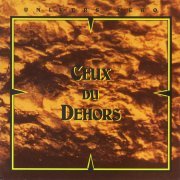 |
Ceux du Dehors (1981, 50.14) ****/TDenseLa Corne du Bois des Pendus Bonjour Chez Vous Combat La Musique d'Erich Zann La Tete du Corbeau Triomphe des Mouches |
Current availability:
Mellotron used:
Univers Zero could easily be mistaken for a Crimson/Henry Cow influenced outfit, but I suspect it's more likely that they just listened to the same early 20th-century composers. Notably, however, there's no jazz in their sound whatsoever, or, for that matter, much actual rock. Ceux du Dehors is dense, difficult music, instrumental, with lengthy drumless passages utilising various members of the woodwind family. Suffice to say, Marillion it ain't. Thankfully. It's the sort of album that repays repeated plays, but unless you're already well into the avant-garde, don't expect to 'get it' first time.
Andy Kirk plays Mellotron on the two longest tracks, the appropriately-named Dense and Combat, although there's not an awful lot to be heard on either. A brief string part on the former and some flute chords on the latter, with possibly a few string chords and that's it, although I'm sure I can hear some Mellotron strings on the improvised La Musique d'Erich Zann, which, for some reason, doesn't have any musicians' credits. So; a very good album, if slightly hard work, but not really one for the Mellotron fan.
See: Samples etc. | Present
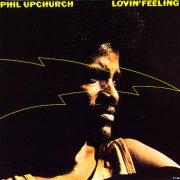 |
Lovin' Feeling (1973, 36.17) ***/TKeep on Trippin'Another Funky Tune Being at War With Each Other Sitar Soul You've Lost That Lovin' Feeling I Still Love You Washing Machine You've Been Around Too Long |
Current availability:
Mellotron used:
Phil Upchurch is an American jazz guitarist, active since the late '50s, who's worked with Stan Getz and B.B. King, amongst many others. His eighth solo album, 1973's Lovin' Feeling, is a pretty straight jazz/soul/funk effort of the time, quite unlike Ben Sidran's Puttin' in Time on Planet Earth from the same year, on which Upchurch guests. Most of the album's instrumental, featuring Upchurch's phenomenal playing, the only familiar tune being his reworking of The Walker Brothers' You've Lost That Lovin' Feeling as a Latinesque, jazzy instrumental.
The superbly-named Tennyson Stephens plays Mellotron, with background strings on opener Keep On Trippin' and I Still Love You, clearly intended to dep for an absent orchestra. I think it's fair to say that this one's strictly for jazz fans; it doesn't even feature enough Mellotron to be worth hearing on that account.
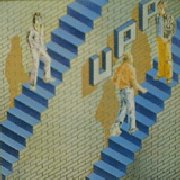 |
Upp (1975, 37.17) ***½/TT½Bad StuffFriendly Street It's a Mystery Get Down in the Dirt Give it to You Jeff's One Count to Ten |
Current availability:
Mellotron used:
After recording several albums with south coast blues-boomers Clark Hutchinson, multi-instrumentalist Andy Clark put Upp together in the mid-'70s, calling on the talents of none other than an uncredited Jeff Beck on their self-titled debut. Upp is a funny sort of record; very '70s, it's that mixture of soul, funk and blues that went out of fashion very quickly, assuming it had ever been in. The playing is fantastic, with Rhodes, clavinet and Moog work to die for and (presumably) Clark has a fantastic 'soul shouter' voice, sounding more like a low-budget Isaac Hayes than a white kid from the south (coast). Not so sure about the material, but then, anything in the soul area is well outside my normal taste boundaries, unless it falls into the 'psychedelic funk' territory of Chairmen of the Board or Edwin Birdsong.
Clark plays background Mellotron strings on opener Bad Stuff and It's A Mystery, with a more upfront part on the, er, 'low down and dirty' Give It To You. Closer Count To Ten adds flutes to the mix, making for a couple of good Mellotron tracks, although I suspect that a lack of orchestral budget is the probable reason, rather than a love of the Mellotron for itself. Or maybe not? Now there seems to be some confusion here: an Andy Clark joined Be-Bop Deluxe in late 1975, in time to tour their Futurama opus (also playing Mellotron on stage, at least initially), but it seems I (and others) have made a bit of an assumption by linking the two. According to the sleevenotes in Get Down in the Dirt: The Complete Upp, they're two different people, which figures, given the timescale. The Be-Bop chap would've been far too busy to have any other projects running concurrently and (the real giveaway), none of the blokes pictured in the Upp anthology look anything like him. So, two keyboard-playing Andy Clarks around at the same time; odd, but far from impossible.
Upp released one more album, the Mellotron-free This Way Upp, which is largely dull with one great instrumental track; both albums and some later demos, often bootlegged as being by Jeff Beck, are contained on the aforementioned Get Down in the Dirt: The Complete Upp. Anyway, Upp seems to be pretty good at what it does, but if you're not into UK soul, you're unlikely to like the bulk of it, with the possible exception of the epic Give It To You. Decent Mellotron work on two songs and background stuff on a couple of others, making this a passable Mellotron album, to my surprise.
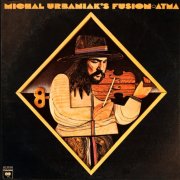 |
Atma (1974, 42.24) ***/T |
|
| Mazurka Butterfly Largo Ilex New York Batsa Kama (Part I) Kama (Part II) Atma - Yesterday |
Atma - Today Atma - Tomorrow |
|
Current availability:
Mellotron used:
As far as I can tell, Michał Urbaniak's Atma was his first album recorded after emigrating to the US in 1973, the first (of three) released under the name Michał Urbaniak's Fusion. Its American genesis may or may not account for its generic fusion sound, led by his five-string violin playing, possibly at its best on New York Batsa and its most experimental on manipulated voice piece Kama (Part I).
Wojciech Karolak plays uncredited, murky chordal Mellotron strings and cellos on opener Mazurka, to no particular effect, to be honest, nice though it is to hear one used in the relatively un-Mellotronic fusion field.
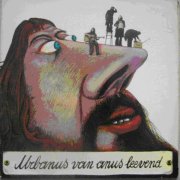 |
Urbanus van Anus Leevend (1974, 37.16) ***/T |
|
| Intro Diploma Engels Protestlied Kwaad Worden Gladde Iolen De Konijnekotelaar (a) De Konijnekotelaar (b) Gigippeke |
Leentje In het Midden van de Nacht De Wereld is om Zeep Simfonieke van den Uitkomen |
|
Current availability:
Mellotron used:
So what kind of a name is Urbanus van Anus? Also known as Urbanus and other noms de plume, Urbain Joseph Servranckx is a Flemish-speaking Belgian comedian/musician/actor/author, vaguely comparable with, say, Billy Connolly, although his songs are better-known. In Belgium, anyway. Side one of 1974's Urbanus van Anus Leevend is a document of his live show, combining music and stand-up, recorded at Stadsschouwburg van Brugge (Bruges) in October of that year; listening to this not speaking a word of Flemish (essentially Dutch) feels like being the uninvited guest, but then, Urbanus didn't make this for Brits, did he? Side two is studio, with a full band, although the style essentially remains the same, a jovial 'massed male voice' kind of thing, that hasn't aged especially well.
Jean Blaute plays Mellotron on closer Simfonieke Van Den Uitkomen, with overdubbed string and flute parts, always welcome, if a tad inessential. Students of Low Countries humour (low humour?) might be interested in hearing this, but I think the rest of us can probably pass.
Uriah Heep (UK) see: |
 |
 |
7" (1984) ***½/T 1001 Nacht (Teil 1) 1001 Nacht (Teil 2) |
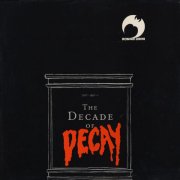 |
The Decade of Decay (1988, recorded 1977-88, 46.41) ***/½ |
|
| Setz die Kontrollen für das Herz der Sonne Exit Tod in der U-Bahn Running Fast Unter den Palmen Ask Emily Grünes Öl Kein Spass |
Zombieland Deep in a Dream Niemand Hilft Mir The Decade of Decay |
|
Current availability:
Mellotrons used:
Ronald "Ronnie Urini" Iraschek (Ronnie Urine. Nice), a.k.a. Ronnie Rocket (Superstar), seems to be a late-period punk poet from Austria, whose first single, 1001 Nacht, as Ronnie Urini & die Letzen Poeten (the Last Poets), is a kind of goth-prog (!) effort, all intoned vocals over doomy backing, no worse than many better-known songs from the era. Now: what to make of this? The rear sleeve, translated, says 'Mellotron from Robert Fripp, the Crimson-King'. There does, indeed, appear to be Mellotron on the track, with a suitably doomy string part opening proceedings and appearing occasionally from then on. But Fripp? In 1984? Obvious bollocks, presumably meant either as a tribute, or a piss-take. Or, of course, both. Is this a super-early bit of sampling? The part doesn't sound like any unaccompanied snippet of Crimso I can think of, but I won't pretend I know every last second of their early albums, even though I should. It sounds genuine, though, so will stay here until/if I should find otherwise. No idea who played the thing, though. Kyrie Eleison's/Indigo's Gerald Krampl? A wild guess. Incidentally, I haven't heard the flip, which is presumably more of the same, Mellotron content unknown.
1988 brought Urini's The Decade of Decay, recorded between 1977 and '89, which doesn't fit the release date, so something's wrong somewhere. Anyway, displaying his roots for all to see, the set opens with his German-language version of Floyd's Set The Controls For The Heart Of The Sun, the rest of the frequently abrasive material veering between a wide range of styles, not least the punk electronica of Tod In Der U-Bahn, '50s pastiche Unter Den Palmen and the jazz moves on The Boulevard Of Broken Dreams and Niemand Hilft Mir. Better tracks? Probably the Floyd cover, Ask Emily and the cheeky Neil Young rewrite (Hey Hey, My My, for what it's worth) of the title track. One Walter Huber plays Mellotron on the punky Exit, recorded in 1979, with atonal, pitchbent strings opening the track.
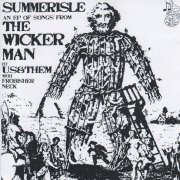 |
Summerisle EP (2011, 12.48) ***½/TTTCorn RigsGently Johnny Fire Leap Willow's Song |
 |
Fading Within the Dwindling Sun (2016, 22.22) ****/TTWinterwindsFarewell, Farewell Next Time Around Banks of the Nile Take Away the Load |
Current availability:
Mellotrons used:
Although Swedish psych/folk duo Us & Them (can't imagine where they got their moniker) have only released one album to date, they have several EPs to their name, making me think they may be happier working in the abbreviated format. The fifth of these, Summerisle, is, of course, the band's tribute to the iconic The Wicker Man (no, you fool, not the shitty remake), although a friend 'in the know' tells me that their versions of four songs from the soundtrack aren't a patch on the originals. To my ears, they're pretty good takes on the material, though, Corn Rigs being a highlight.
Tony "Frobisher Neck" Swettenham guests on dulcimer and Mellotron (thanks for the corrected info, Tony!), with cellos, M300A violins (i.e. two, rather than the usual three), bass clarinet and an oboe/cor anglais mix, a sparse flute part on the brief Fire Leap, plus buried-in-the-mix bass clarinet, bassoon, French horn, the oboe/cor anglais mix again, piano (!) and trombone, and flutes, strings, vibes and the MkII 'smooth organ' on the lengthy(ish) Willow's Song, more obviously on the latter. Worth buying this for? Barely, to be honest. What's more, I'm not even sure whether this is still in print; there have been several vinyl editions, but the only CD version appears to be a promo.
2016 brought another EP, the five-track Fading Within the Dwindling Sun, every bit as beautiful and haunted as the Wicker Man tracks, concentrating on songs associated with the incomparable Sandy Denny, heavily featuring Britt Ronnholm's fittingly upfront, intimate vocals. We get material from The North Star Grassman & the Ravens (Next Time Around), Fotheringay (Winterwinds/a lengthy Banks Of The Nile), Fairport's iconic Liege & Lief (Richard Thompson's Farewell, Farewell) and Take Away The Load from posthumous boxed set Who Knows Where the Time Goes?, highlights being, frankly, impossible to pick out. Tony plays Mellotron on two tracks, with (as far as I can tell) strings (and cellos?) on Farewell, Farewell and either bassoon or cor anglais plus cellos, (M300A?) strings and choirs on Banks Of The Nile.
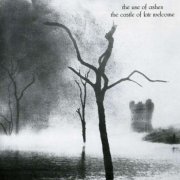 |
The Castle of Fair Welcome (1988, 53.30) ****/TT½ |
|
| Spring's Green Tournament King Uheit Snowheart Eve of Separation Gallant White Horses Five Lucky Hands Vanishing People |
The Forest is Still On a Gloomy Afternoon An Owl Told Us Where the Fish Can Sing Twelfth Night, a White Spider Still Still |
|
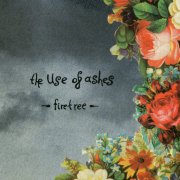 |
Firetree (1996, 60.57) ***/T |
||
| Sunshine Day Prince of Darkness Nääri Castle in Grey Light Into the Radiant Blue The Light Rains The Celestial Hand Blood in August |
Last Tear of the World Drowning Astray From the Light Tree Golden Gate Song From Under a Bridge 1000 Suns The Tears Around the Moon |
White Garden Love Love (1000 Suns Reprise) Fire Tree |
|
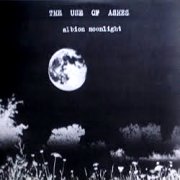 |
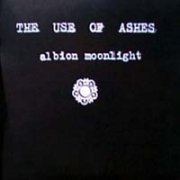 |
Albion Moonlight (1998, 26.13/32.38) ***½/T½The Smell of Burning WingsLiquid Green Hinterland Night Fairies Under the Icemoon My Pale Friend Flowerman Sleepflow A White Horse |
Current availability:
Mellotrons used:
The Use of Ashes (named for Pearls Before Swine's 1970 psych classic) mutated out of the cheekily-named Mekanik Kommando in the mid-'80s, emerging as early players in the darkwave game, although I doubt whether they ever thought of themselves in those terms. 1988's The Castle of Fair Welcome was originally released under the Mekanik Kommando name, before the trio dropped some of their electronics for more acoustic instrumentation and changed their name, reissuing it as UoA in 2005.
It's a drifting record, occasionally breaking into a gallop, albeit always briefly, before slipping back into its dreamlike state, with impossibly gothic (note: not Goth) subject matter. Would anyone try to get away with calling songs An Owl Told Us or Twelfth Night, A White Spider these days? I doubt it. The overall effect is of a waking dream, maybe, resting yet restless... Er, sorry, it seems to be catching. Trying to pick out individual tracks for praise is almost pointless. The whole point of the album is its cohesiveness; this is meant to be listened to as a whole. All three band members play Mellotron: Simon and Peter Van Vliet and Jack Kaat, who tell me this is their most Mellotron-heavy release. What you get for your dosh is faint choirs on opener Spring's Green, strings on Gallant White Horses and (more overtly) Five Lucky Hands and On A Gloomy Afternoon, with phased strings and choirs on An Owl Told Us. All in all, a very listenable record, thankfully now available on CD, with a decent helping of Mellotron from an era of Mellotron drought.
1996's Firetree is the band's sole release on Italy's Mellow imprint, not dissimilar to The Castle of Fair Welcome, with something of an early Floyd vibe about many of its tracks. Highlights? The dark, ten-minute Prince Of Darkness, Blood In August's dirty electronica and the beautiful Last Tear Of The World, perhaps. No specific credits, but Mellotron on three tracks, with high cellos (?) on Into The Radiant Blue, volume-pedalled strings on From The Light Tree and distant (male?) choirs on Golden Gate.
Albion Moonlight, originally released on 10" vinyl (the italicised tracks above denote those only available on the later CD issue), is a more rhythmic proposition all round, even ignoring the bonus tracks. More 'indie', less 'darkwave', for those who like The Castle of Fair Welcome and were hoping to hear more of the same. Highlights? Under The Icemoon's about the nearest you'll get to their previous style, while closer A White Horse features a fantastic, overwhelming piece of delay effect use. Just Peter Van Vliet on Mellotron this time round, with high, distant strings on Under The Icemoon, morphing into more upfront use, with more upfront strings on Flowerman, for what it's worth.
See: Mekanik Kommando
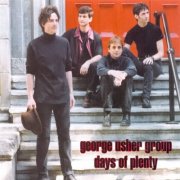 |
Days of Plenty (2000, 43.40) ****/TT½ |
|
| Smoke That Kiss I'm Not Gonna Be Around Channel 104 Days of Plenty Crowded Mind The End and the Beginning Our World Counterfeit Delay |
Baby, Where'd You Go? Unfinished Prayer I Feel a Struggle Comin' on Long Long Never |
|
Current availability:
Mellotron used:
2000's Days of Plenty is George Usher's (to my knowledge) lone Mellotron album, its two predecessors (1996's Miracle School and 98's Dutch April) featuring rather ropey samples. Days of Plenty is a classic powerpop album, pretty much every track being a winner, notably I'm Not Gonna Be Around, Our World and closer Long Long Never, all featuring everything you could ask for from the style: memorable melodies, gorgeous harmonies and much guitar jangle.
Usher plays Mellotron himself, with a nice, full string part on the title track, strings accenting the riff on Crowded Mind and polyphonic flutes on Unfinished Prayer and both sounds on Long Long Never, although the cellos and violin on The End And The Beginning are real. Overall, vastly better than other, more fêted artists and more than worthy of your purchasing power. Four good Mellotron tracks merely add to the album's appeal, especially given that it sounds real (hurrah!).
See: Samples etc.
 |
Utopia (1973, 35.57) ***½/TT½What You Gonna Do?The Wolfman Jack Show Alice Las Vegas Deutsch Nepal Utopia No. 1 Nasi Goreng Jazz Kiste |
Current availability:
Mellotron used:
Utopia were an Amon Düül II offshoot, probably better described as a breakaway faction after violent rows within the band. Both sides had made up by the time they recorded Utopia, so both it and Düül's Wolf City feature members of both bands and the CD version of the album actually credits it to Amon Düül II (doubtless to increase sales), adding to the confusion. Unsurprisingly, it has a lot in common with Düül (Utopia No. 1 and Nasi Goreng could easily be the parent band), but is different enough to be treated as a band in its own right. What You Gonna Do? sounds next to nothing like Düül, ditto the balladic Alice, but, er, well, the rest of the album could be. Not that different then, really.
Lothar Meid is credited with Mellotron, but it's hard to know what's being used at times, to be honest. The Wolfman Jack Show has what sounds like solo female voice tapes, but since the Mellotron library has never offered the sound, confusion reigns. More 'standard' flutes on Alice, though I'm beginning to suspect a Chamberlin here. In Germany? In 1973? Well, a handful made their way to Europe (French outfits Magma and Dan Ar Bras both used one), but I've never heard of any German use before. Of course, Utopia's parent band used the famous 'choir-organ' on albums recorded around the same time (reviewed here), but that doesn't account for the flute tapes. Anyway, separate male and female voices on the bonkers Deutsch Nepal and Utopia No. 1, sounding like they might be the choir-organ again and that's your lot, leaving us none the wiser as to what was actually being played here.
So; if you like Amon Düül II, I think it's fair to say you'll like Utopia and you'll probably find the CD filed with Düül anyway. Pretty good use of something involving tapes, but whether or not it's actually a Mellotron will have to remain a mystery, at least for the moment.
See: Amon Düül II